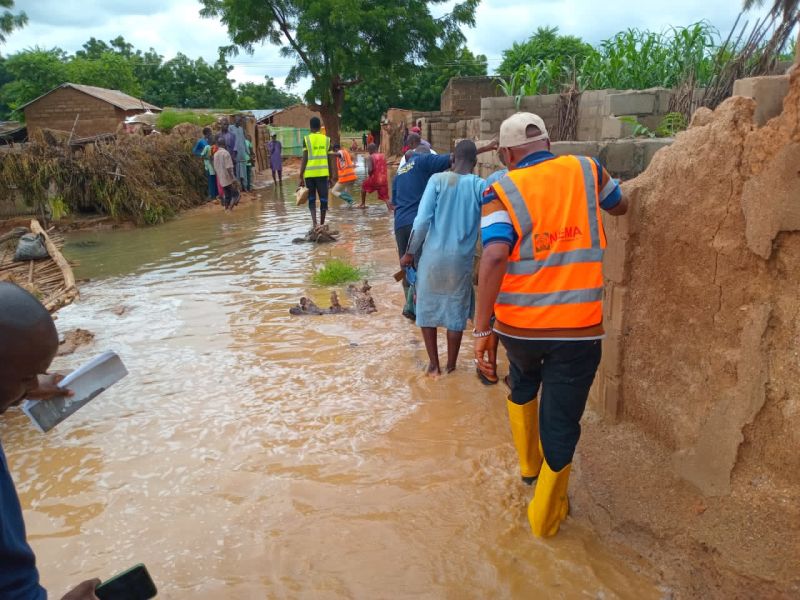
Nigeria’s Deadly Floods: Over 170 Lives Lost in Ongoing Disaster
At Least 170 Killed in Weeks of Flooding in Nigeria, Authorities Say
The recent devastating floods in Nigeria have claimed the lives of at least 170 people, with many more injured or missing. The unprecedented flooding, which has occurred over several weeks, has caused widespread destruction, displacing thousands of individuals and damaging homes, infrastructure, and agricultural lands across the country.
Authorities in Nigeria are scrambling to address the grim situation, with emergency response teams working tirelessly to provide relief and support to those affected by the floods. Efforts to rescue stranded individuals, distribute aid, and provide medical assistance are underway, but the scale of the disaster has overwhelmed local resources and infrastructure.
The relentless rains and overflowing rivers have exacerbated the flooding, leading to severe flooding in several regions of Nigeria. The impact of the floods has been particularly devastating in densely populated urban areas, where makeshift homes and informal settlements have been ravaged by the rising waters.
The humanitarian crisis unfolding in Nigeria highlights the urgent need for proactive measures to mitigate the impact of natural disasters and climate change. With extreme weather events such as floods becoming more frequent and severe, it is imperative for governments, communities, and organizations to enhance their preparedness and response capabilities.
In the aftermath of the floods, the focus is on providing critical aid and assistance to those affected, including shelter, food, clean water, and medical care. However, the long-term recovery and rebuilding efforts will require sustained support and commitment from all stakeholders, including international partners and donors.
As Nigeria grapples with the aftermath of the devastating floods, there is a pressing need for increased investment in disaster risk reduction, infrastructure resilience, and climate adaptation measures. By prioritizing these efforts, Nigeria can strengthen its ability to withstand future disasters and protect the lives and livelihoods of its citizens.
In conclusion, the recent floods in Nigeria have had a devastating impact on the country, claiming numerous lives and causing extensive damage. The response to the crisis underscores the importance of effective emergency preparedness, timely response, and long-term recovery planning. As Nigeria works to address the immediate needs of those affected by the floods and rebuild communities, a concerted effort is required to build resilience and foster sustainable development in the face of mounting climate challenges.
